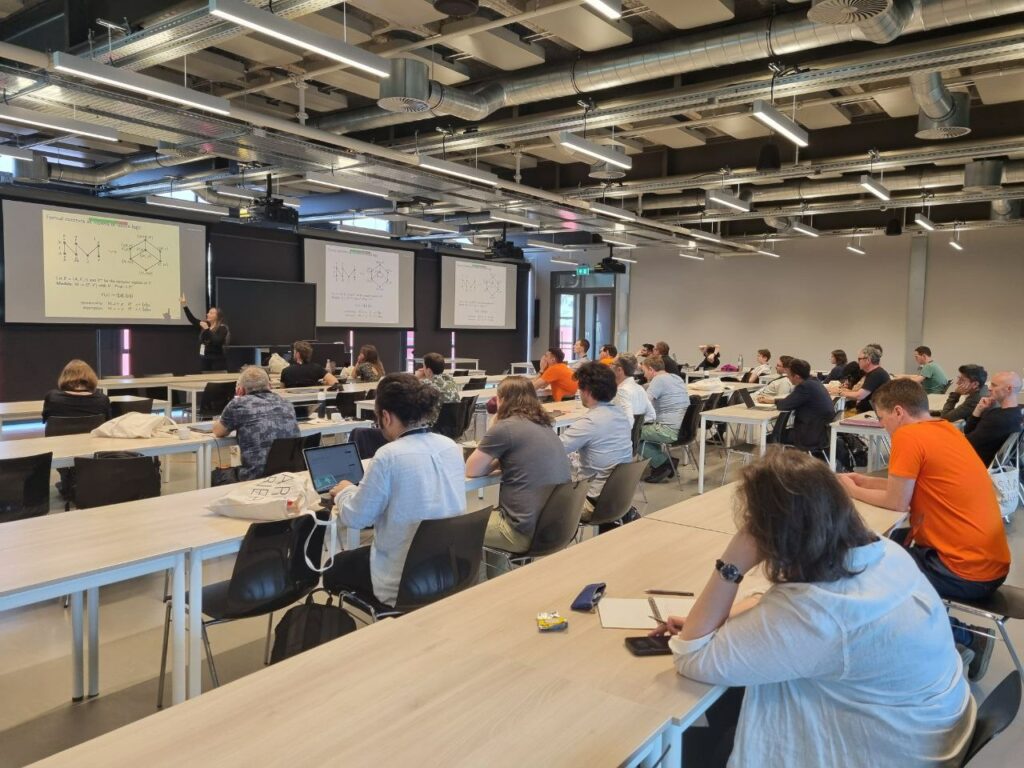Program 2024
First session (9.00-10.30)
—
9.00-9.05: Greetings and Welcome
—
09.05-09.10: Presentation of the ACCORD project
Maria Hedblom
—
9.10- 9.40 (20+10): From Human Cognitive Expertise to Ontological Formalization: Bridging the Knowledge Gap for Nanophotonic Calculator Design and Simulation (online)
Ouassila Labbani Narsis, Erik Dujardin, Christophe Nicolle and Nicolas Gros
—
9.40-10.10 (20+10): Understanding ASD: Design and Development of a Domain Ontology to Assist Professionals In Understanding Autistic Children Based on DSM-5
Jessica Lima, Victor Oliveira and Patrício Silva
—
10.10-10.30 (15+5): Preliminary steps toward an ontology for noun classes in Niger-Congo languages (Abstract)
C. Maria Keet
— (coffee break)
Second session (11.00-12.30)
—
11.00-11.30 (20+10): Ontologies, Arguments, and Large-Language Models
John Beverley, Francesco Franda, Hedi Karray, Daniel Maxwell, Carter-Beau Benson and Barry Smith
—
11.30-12.00 (20+10): The Geography of Temperature Space
George Wright and Matthew Purver
—
12.00-12.30 (20+10): What is Abstraction in Biomimetics?
Ludger Jansen
— (lunch break)
Third session (14.00-15.00)
14.00-15.00: Keynote: Categories & Categorization
Alessandra Palmigiano
15:00: Closing
Keynote
Alessandra Palmigiano, VU Amsterdam
Categories & Categorization
Abstract: Categories are cognitive tools that humans use to organize their experience, understand and function in the world, and understand and interact with each other, by grouping things together which can be meaningfully compared and evaluated. They are key to the use of language, the construction of knowledge and identity, and the formation of agents’ evaluations and decisions. Categorization is the basic operation humans perform e.g. when they relate experiences/actions/objects in the present to ones in the past, thereby recognizing them as instances of the same type. This is what we do when we try and understand what an object is or does, or what a situation means, and when we make judgments or decisions based on experience. The literature on categorization is expanding rapidly in fields ranging from cognitive linguistics to social and management science to AI, and the emerging insights common to these disciplines concern the dynamic essence of categories, and the tight interconnection between the dynamics of categories and processes of social interaction. However, these key aspects are precisely those that both the extant foundational views on categorization struggle the most to address. In this talk, I will discuss by way of examples how methods, insights, and techniques pertaining to structural proof theory, algebraic logic, duality theory, and category theory in mathematics can be used in synergy with one another to develop an overarching logical theory of categories and categorization, on which new generation explainable AI can be based, as well as a principled approach to human-machine interaction.

Alessandra Palmigiano holds the Chair of Logic and Management Theory at the School of Business and Economics of the VU Amsterdam. In the past ten years (also thanks to a number of grants), her research has been focusing on categories (understood in the Aristotelian sense) as the most fundamental cognitive tools both for humans and machines. With her group, she is engaging in a research program aimed at building a foundational logical theory of social interaction and its dynamics on the basis of categories and categorization. This research program has direct relevance for a wide range of disciplines which include AI, (computational) linguistics, cognitive and social sciences, management science. Especially working incollaboration with researchers in these disciplines, her strong interest is in using formal tools for representing categorical dynamics to track changes in meaning, analyse the processes of decision-making via persuasion and deliberation, and other aspects of agency and cognition.
